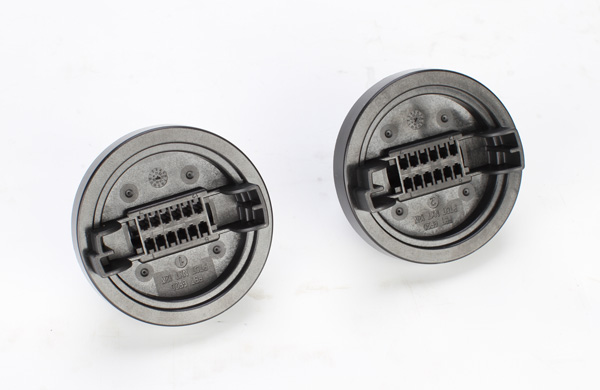In the precise process of plastic injection molding, there are occasional instances where plastic materials fail to enter the screw from the feeder, a problem particularly prominent when processing nylon materials. So, what factors contribute to this "poor feeding" phenomenon? This article delves into the underlying causes and offers corresponding solutions.
In injection molding, small injection molding machines, characterized by their finer screw diameters and shallow feeder inlets, have higher purity requirements for raw materials. Recycled materials, often containing impurities and irregular shapes, can struggle to pass through such narrow feeder channels smoothly, leading to feeding issues. Therefore, for small injection molding machines, avoiding the use of recycled materials is crucial to ensure smooth material supply.
When using pellets containing glass fibers, the length of the pellets becomes a crucial factor affecting feeding efficiency. While longer glass fiber pellets may not pose significant issues for large and medium-sized injection molding machines, in small machines, due to the smaller size of the molded products, longer fibers can hinder the smooth entry of pellets. Thus, opting for short fiber pellets becomes an effective means of improving feeding efficiency.

The temperature setting of the injection molding machine's feeder directly impacts the melting state of the plastic material. Excessive temperatures accelerate the melting of the plastic, causing it to become overly fluid, which not only affects the material's physical properties but also prevents the screw from effectively conveying the melted material, leading to poor feeding. Therefore, precisely controlling the feeder temperature and avoiding overly high settings is key to ensuring smooth feeding.
Screw back pressure is an important parameter in the injection molding process, influencing the plasticization and conveyance of the material. Excessive back pressure increases the resistance when the screw rotates, potentially preventing it from retracting. This is especially problematic when processing nylon plastics, where high back pressure can cause feeding difficulties. Therefore, adjusting the back pressure to a lower level based on the material characteristics is an effective way to improve poor feeding.
In semi-automatic molding, the stability of the dwell time is crucial for ensuring feeding quality. Nylon plastics, due to their unique physical properties, are particularly sensitive to fluctuations in dwell time. Unstable dwell times can result in uneven heating of the plastic in the feeder, affecting its flowability and ultimately causing poor feeding. Therefore, strictly controlling the dwell time during semi-automatic molding is key to ensuring smooth feeding of nylon plastics.
In summary, poor feeding in plastic injection molding is not an unsolvable mystery. By accurately identifying the root causes and implementing corresponding solutions, we can overcome this challenge and ensure the smooth progress of the injection molding process and the steady improvement of product quality.